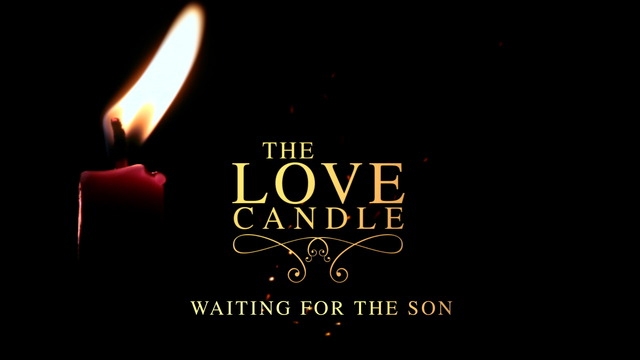
by Robin Basselin
Advent Love
On the last Sunday of Advent, churches will light a fourth candle as a symbol of Advent love. Believers will reflect on scriptures from the Old and New Testaments about God’s love for us. God’s love undergirds the whole story of the Bible: creation, fall, redemption, and the ongoing process of restoration. Let’s delve into the bigness of Advent love.
God’s Love from the Beginning
It might seem a little odd to begin our reflection on Advent love all the way back in Genesis 1, but we need to remember that God’s loving plan for us started with his very first act of creation. Out of nothing, God called forth light. He separated land from the sea, created the sun, moon, and stars, and all the creatures of earth, but the the pinnacle of his creation was humanity. He created us in his own image and made us to love and be loved (Genesis 1:26-30). However, the first humans doubted the truth of God’s love for them and rebelled. But even in humanity’s fall into sin, we find God’s loving mercy. God did not destroy Eve and Adam, and even as they began to experience the serious consequences of their sin, God made his first promise of future redemption: that Eve’s own offspring would one day crush the head of the serpent once and for all time (Genesis 3:15).
God’s Loving Promise
As we trace the story of God’s people through the Old Testament, we see God’s loving plan unfold. God promised Abraham that he would make his descendants a people who would bless all people. God foretold of the One, born of a virgin, who would free the captives, bear our transgressions, suffer in our place, redeem God’s people, and usher in a peace unlike anything ever known. Isaiah prophesied the words of the Lord, “‘For the mountains may depart and the hills be removed, but my steadfast love shall not depart from you, and my covenant of peace shall not be removed,’” (Isaiah 54:10).
And though God’s plan took time, he lovingly walked with his people through their suffering, temptation, lose, and trial. Hearing their cry under the yoke of slavery, he led them out of Egypt (Exodus 3-18). When God’s people faced exile from the land, he declared, “Fear not, for I have redeemed you; I have called you by name, you are mine. When you pass through the waters, I will be with you; and through the rivers, they shall not overwhelm you; when you walk through fire you shall not be burned, and the flame shall not consume you. For I am the Lord your God, the Holy One of Israel, your Savior” (Isaiah 43:1-3). Generation after generation, God remained faithful to his people even when they doubted him, questioned him, and turned away from him. Witnesses of God’s loving faithfulness, like Nehemiah, testified “You are a God ready to forgive, gracious and merciful, slow to anger and abounding in steadfast love…” (Nehemiah 9:17).
Love with Us
Revisiting the big picture of God’s love for his people during Advent helps us understand the significance of that very first advent, the coming of a Savior. For this precise reason, Matthew starts his gospel with Jesus’ genealogy, tracing his lineage back through King David to Abraham. Matthew wants us to understand that this major event is connected to God’s bigger story of love and redemption. Love, incarnated in the form of a tiny baby, came to fulfill a promise God made centuries before. Paul explains, “he made himself nothing by taking the very nature of a servant, being made in human likeness” (Philippians 2:7). And he did it because “God so loved the world that he gave his one and only Son, that whoever believes in him shall not perish but have eternal life” (John 3:16). This is Advent love, “not that we loved God, but that he loved us and sent his Son as an atoning sacrifice for our sins” (1 John 4:10).
Our Call to Advent Love
Today, we look back and remember that first advent. We see God’s promise of redemption fulfilled and we know that a new era of God’s restoration has been ushered in. But what are we called to do now as we wait upon the second advent of Jesus Christ? The answer is simple. We are to do what Christ does, love. When his critics tried to test him, asking which commandment is the greatest, Jesus answered “‘You shall love the Lord your God with all your heart, and with all your soul, and with all your mind.’ This is the greatest and first commandment. And the second is like it: ‘You shall love your neighbor as yourself’” (Matthew 22:37-39). And so this Advent, let us ask how we can love God and love our neighbor more fully, so that we might fulfill the call of Jesus Christ:
“Dear friends, let us love one another, for love comes from God. Everyone who loves has been born of God and knows God. Whoever does not love does not know God, because God is love. This is how God showed his love among us: He sent his one and only Son into the world that we might live through him. This is love: not that we loved God, but that he loved us and sent his Son as an atoning sacrifice for our sins. Dear friends, since God so loved us, we also ought to love one another. No one has ever seen God; but if we love one another, God lives in us and his love is made complete in us” (1 John 4:7-12).
